The protein powder post.
It’s finally here.
I have a lot of strong opinions when it comes to protein powders. In general, I am not a big fan of them. I think that people are way too dependent on protein powders, and I don’t think they should be consumed on a daily basis… unless it’s a certain type of protein. Will get to that in a second.
I understand the appeal of protein powders. They’re a convenient way to get protein into smoothies. And when you’re making a smoothie, I do think it’s important to add some protein to round out the meal and increase satiety. They’re also a convenient way to get protein into a soup or sauce if you’re not having another source of protein with your meal.
As I’ve mentioned before, though, I don’t think protein powders should be something that people depend on on a daily basis. I am a strong believer in a whole foods diet, and I avoid processed foods. Protein powders are highly processed. The proteins are often heated at incredibly high temperatures and therefore highly damaged. Our bodies weren’t designed to process that kind of protein. Because of the way they’re processed, many also contain some amount of heavy metals, like lead and mercury. Yikes.
Protein powders are also just… straight protein. There’s a reason why straight protein isn’t found in nature. Sources of protein found in nature are balanced with fats and carbohydrates so that our bodies receive and absorb the right amount of nutrients together, protecting against imbalances in our bodies.
The real problem I have with protein powders, however, is all of the unhealthy ingredients added into them. SO. MANY. UNNECESSARY. INGREDIENTS. That’s what really gets me riled up. If you look at the ingredients label, most protein powders have about fifty different things in them. That’s the first problem. Why is that necessary? They add these ingredients to make the highly processed powder palatable. They add sweeteners and thickeners, turning the protein powder into something that’s will turn your “protein shake” into a low-calorie, sugar-filled dessert smoothie.
This is a bit of a side rant from the nutritional-aspect-argument, but you have to understand that protein powders are mainly a way for people in the dieting and fitness industry to make money. First of all, the myth has been spread far and wide that people need HUGE amounts of protein all the time, especially after they workout, or else all of their efforts are a waste and horrible things are going to happen to their bodies. This is simply untrue. Meanwhile, the dieting industry has also used protein powders as a way for people to easily drink low-calorie, low-fat smoothies instead of real meals, tricking themselves into eating less food (and less nutrients) than they need to. Do you really think that almond milk mixed with chocolate-flavored protein powder is a healthy or sufficient meal replacement? I could go on about this forever, but I’ll move on. I think you get the point.
Back to the ingredients. There are honestly too many to go through them all here, but I do want to call attention to a few that are found in even the most popular protein powders that people think are “clean.” I see a lot of people promoting protein powders saying they have “clean” ingredients, when that’s not always the case. Just because the protein powder only has a few ingredients (which is much better than protein powders with 20 or more, of course), doesn’t mean that those few ingredients are the best choices for your body. Also, just because a blogger says a protein powder has “great ingredients” doesn’t mean it’s true. Always do your own research.
Let’s begin with the actual protein itself. What source of protein is it? There are so many different types of protein – whey, pea, rice, hemp, and so on. What’s tricky is that within each of those categories, there can be good and bad sources of each. For example, if you’re going with whey protein, you want to make sure it’s a non-denatured whey protein from a grass-fed source. 100% egg-white proteins can also be another good option, but again, what’s the source? Also, it’s common for people to react negatively to egg whites, unfortunately. If you don’t do well with whey, either, then you might turn to a vegan source of protein. Pea and rice protein are common ones, but I’ve found that for many people, these types of protein are difficult to digest. My personal experience has been that pea and rice protein leave me bloated and in severe digestive discomfort, even when there are no other ingredients in the protein powders.
Xantham gum and guar gum are two more ingredients that are found in a lot of popular protein powders but can cause issues for many. These ingredients are thickeners and emulsifiers, and they are very difficult to digest. They’ve been shown to increase intestinal permeability (a.k.a. contribute to leaky gut) and feed bacterial overgrowths in the body. For reference, I took guar gum powder for a week to GROW my small intestinal bacterial overgrowth prior to treating it, just to make sure we eradicated as much of it as possible. Most people don’t realize that these ingredients are causing such digestive upset. Sometimes it happens immediately, but sometimes it’s over time.
Lecithins are another culprit. Lecithin are emulsifiers and antinutrients that create inflammation in the body and reduce our bodies’ abilities to absorb important minerals and nutrients.
I encourage you to research how xantham gum, guar gum, and lecithins are created. You will quickly see that these are far from “whole foods,” and they’re probably not something you want to ingest.
The other ingredient to be wary of is “natural flavors.” These could basically be anything. They’re usually artificial flavors created in labs, filled with toxins and chemicals. Sometimes it means they slip gluten in there. That is very oversimplified, but it’s the important piece to know. Unless you call the company and find out exactly what those “natural flavors” are… I would stay away.
Then we have the sweeteners. This is the big one. First of all, check for sugar. The majority of protein powders on the market contain some kind of sugar to mask their taste. (It tastes bad, by the way, because it’s so highly processed.) Some have plain old cane sugar, others have coconut sugar. The new popular sweeteners are monk fruit and stevia.
When it comes to sugar, I don’t think it needs to be in a protein powder at all. Why unnecessarily add sugar to your diet when you don’t need it? There is a time and a place for sugar in a healthy lifestyle, but it’s not something you should be consuming every day when it has been linked to metabolic disease, digestive distress, neurodegenerative diseases, heart disease, high blood pressure, abdominal obesity, and more. If you want to sweeten your smoothie, that’s what fruit and spices are for!
Let’s talk about stevia for a second. I will most likely write a whole post on stevia, but to sum up my feelings on it – I would stay away from the stevia in protein powders on a daily basis, especially if you are struggling with digestive issues. It is one of the main gut irritants affecting people today. There are other downsides of stevia, and there isn’t enough research for people to agree on its longterm health effects. I agree with Dr. Mercola who says that stevia is guilty until proven innocent. While real stevia might not be a problem, the stevia in protein powders, I can guarantee you, is not real stevia. Real stevia is more expensive and harder to find. The stevia in protein powders is, like the powders themselves, highly processed, which is doing your body more harm than good. Plus, stevia has a weird aftertaste anyways.
Overall, my impression of protein powders is that most of them contain unnecessary sugars and also cause major digestive distress. If you’re struggling with digestive discomfort, are having trouble reaching a balanced weight, or are having flare-ups with acne or other skin conditions, try eliminating your protein powder. I can’t tell you how many times people have completely eliminated their bloating simply from getting rid of their protein powder, or have effortlessly lost their last ten pounds just by replacing it with something else. It is a processed food, after all.
The other thing that is very important to consider is that many protein powders do include potentially harmful ingredients in such small amounts that the companies don’t even have to include these on the label. Even if you think it’s totally “clean” because the ingredient label says “100% pea protein” or “pure hemp protein,” doesn’t necessarily mean it is. There are companies who also include thickeners, vegetable gums, and ingredients like maltodextrin in their powders but don’t even have to put that on the label. These ingredients can cause digestive upset for many, and are important to know about if you are avoiding allergens.
Similarly, there are protein powders that are processed in gluten-containing facilities, and therefore are not gluten-free even though they otherwise should be. For example, I recently discovered that one of my old favorites that was 100% pure pumpkin seed powder, which should naturally be gluten-free, was not actually gluten-free because of the facility it was processed in. I would never had known this had I not spoken with the company directly. That’s why it’s extra important to make sure your protein powder, if you’re using it, is verified gluten-free, no matter what the ingredients say.
My preferred type of protein? REAL FOOD. Simple as that. I don’t see the need for protein powders in people’s diets. After I workout, I eat a meal. Whole foods. There is protein in chicken, turkey, eggs, meat, nuts, seeds, and even vegetables. I think that protein powders should be more of a once in awhile thing than an every day staple, with one exception. Let’s get to that.
If you want a protein powder for daily use, I recommend using Vital Proteins Collagen instead. Collagen has a ton of amazing benefits – it heals the gut lining, helps with joint pain and muscle repair, improves the health of your hair, skin, and nails, and much more. You can read about the benefits of collagen here. Collagen is not a typical “protein powder.” I fully support the daily use of collagen because of it’s wide health benefits. It has personally transformed my health! You can get the unflavored collagen or one of the flavored versions (I love Vanilla Coconut).
If you absolutely have to have a protein powder, here are my tips when looking for the best one. When looking at protein powders, I first look at the source of protein. I prefer a seed-based protein, because they tend to be safe for most people. A lot of people react to dairy and whey, and pea and rice cause digestive distress in most sensitive stomachs. For that reason, I usually like hemp protein or pumpkin seed protein. Beyond that, I look for minimal ingredients. I would prefer one ingredient. If there are more ingredients, they need to be things I would add on my own to the smoothie, even if they weren’t in the powder. No artificial sweeteners or words I can’t understand.
The only protein powders I personally use are Philosophie’s Green Dream and Cacao Magic. They both have ingredients beyond hemp protein, but those ingredients are actually benefiting your health. They don’t have stevia or anything I can’t pronounce in them. The Green Dream is perfect for green smoothies or savory dishes, which makes it really versatile. It contains spirulina, maca, mesquite, chia seeds, vanilla, and hemp powder. All organic. The Cacao Magic contains cacao powder, cacao nibs, reishi, mesquite, mama, chia seeds, hemp protein, and vanilla. Also all organic. These powders are filled with antioxidants, and I love that they make it so much easier to get extra “superfoods” into your diet. Each of those ingredients are things that I would add separately to my smoothies anyways – so using these just saves me time. Plus, they taste amazing.
Aaaaand those are my thoughts on protein powders. Not a fan of 99% of them. If you need a powder for daily use, I suggest using collagen to get the added health benefits. If you don’t want collagen, I love the Philosophie products. In the end, though, I will always be a supporter of real food! Most people don’t realize how big an effect their protein powder is having on their health. If you’re experiencing health issues and consuming protein powder on a daily basis, I highly recommend checking the ingredients and seeing if that is contributing to the problem!

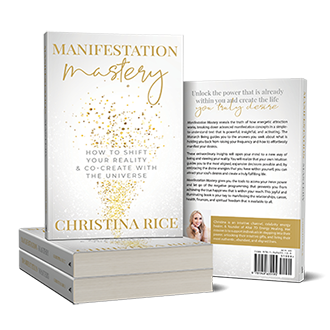


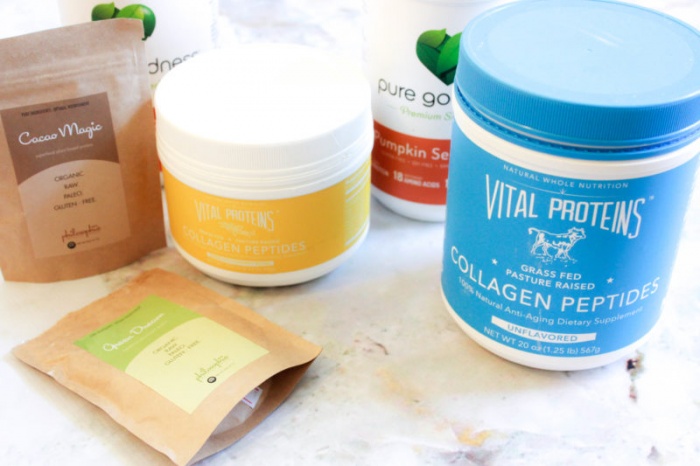
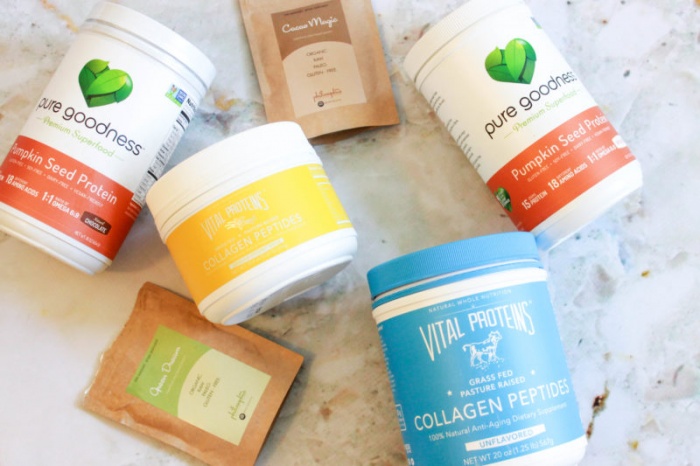
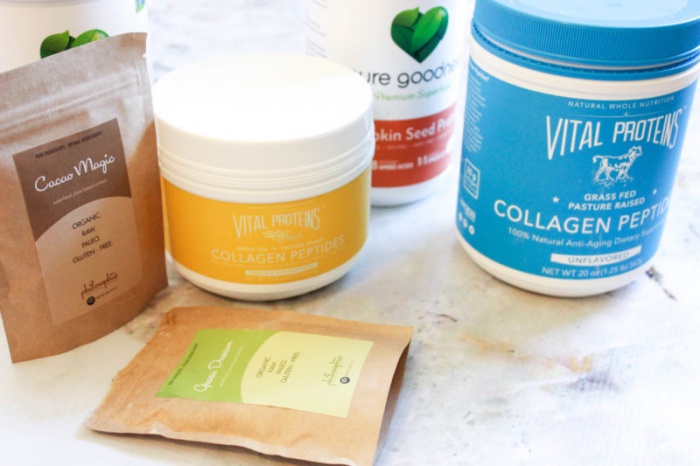
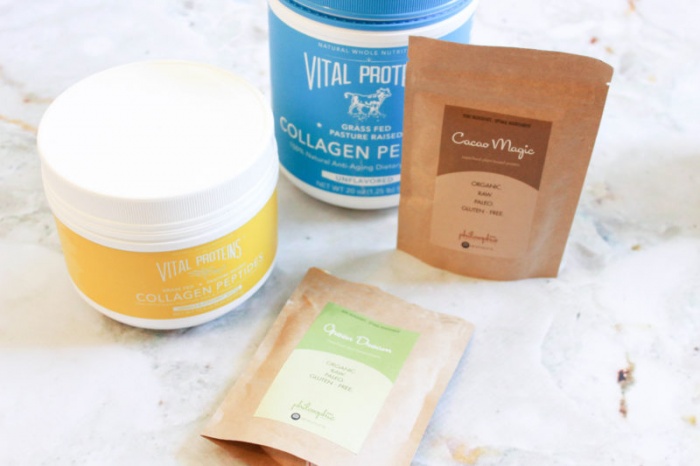
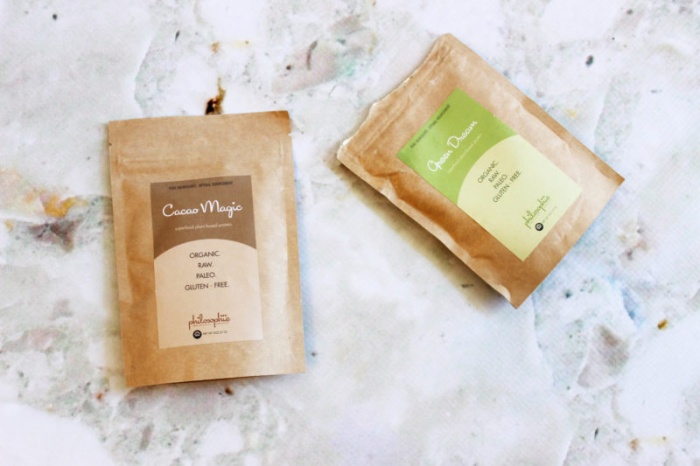
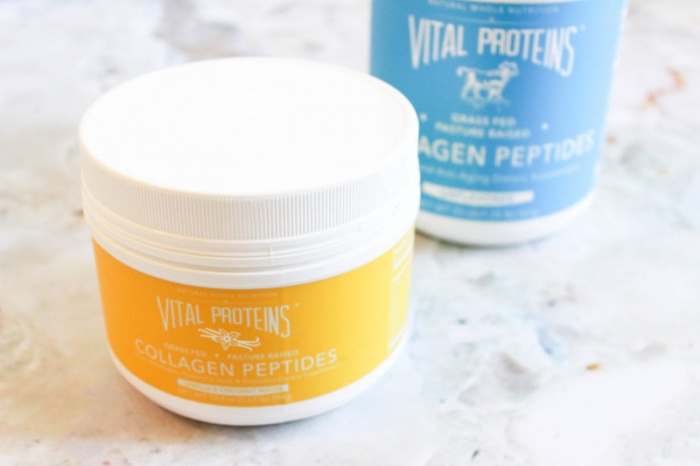
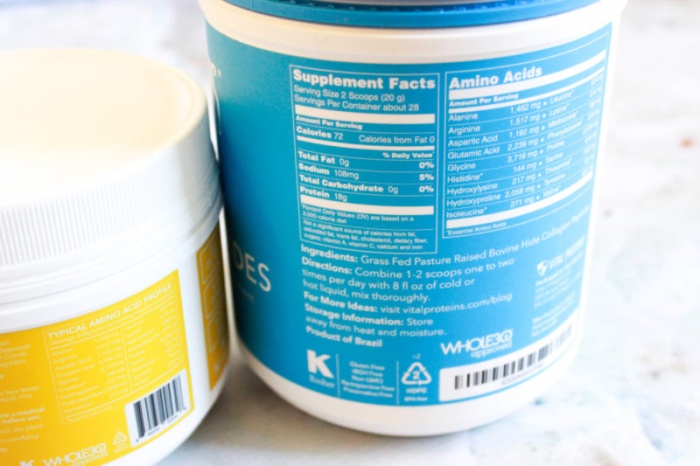
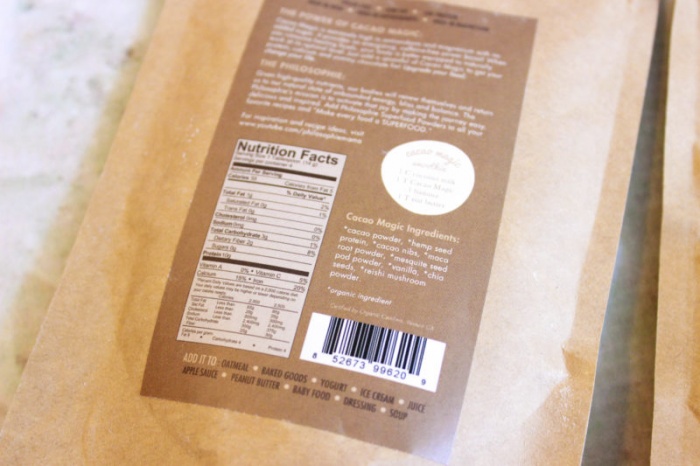

Get Updates
And Goodies
We’re over fake “wellness.” It’s time to unlock your magic & magnetism. Are you ready to vibe higher?
Are you ready to finally optimize your health habits for real results and true health?